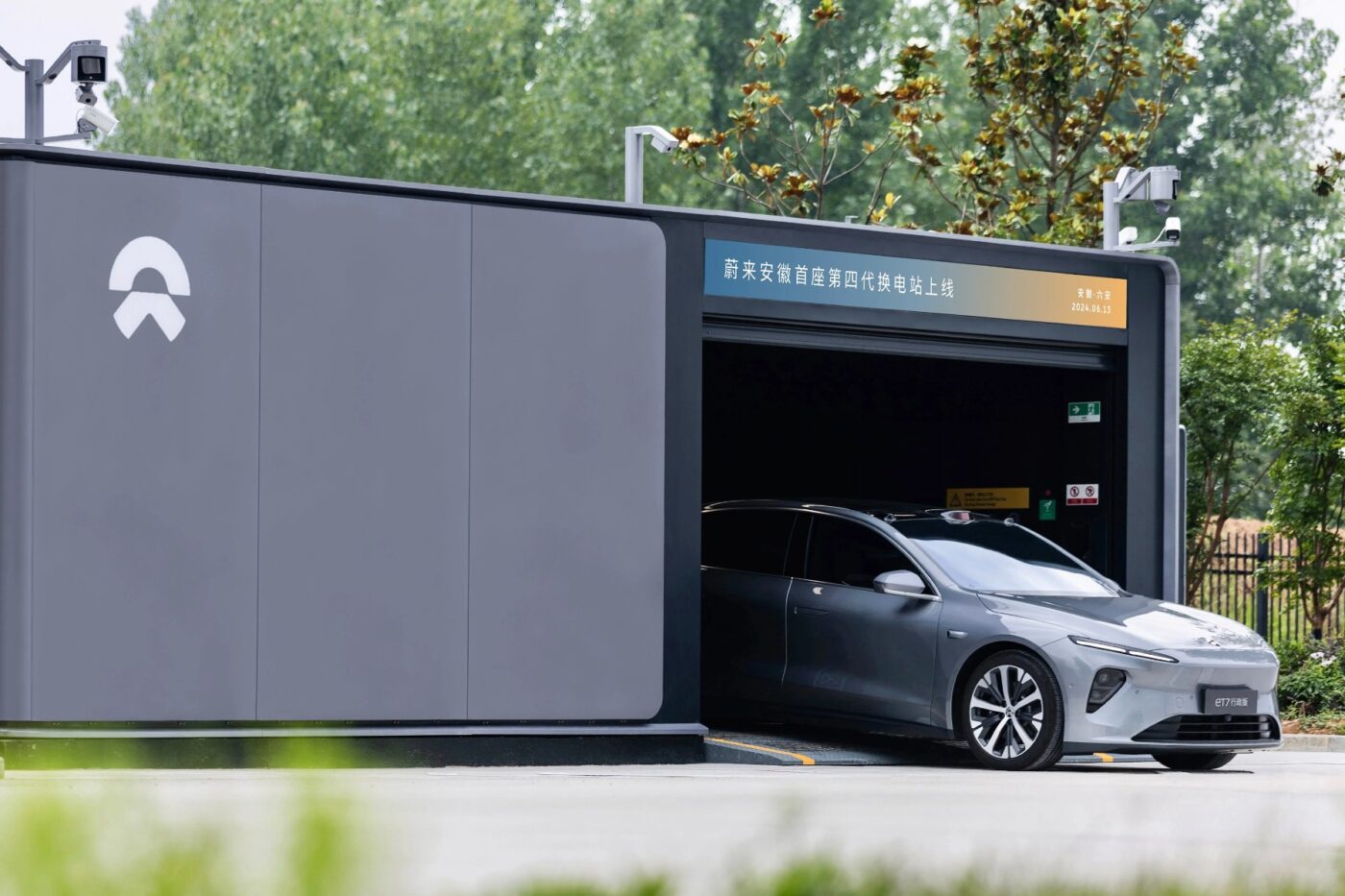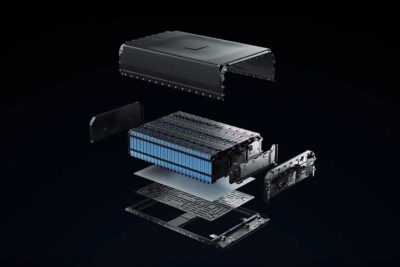Nio drops 150 kWh battery with semi-solid electrolyte again
A year and a half ago, Nio celebrated the start of series production of its 150 kWh battery packs, after their launch had been postponed several times. The batteries feature a semi-solid, gel-like polymer electrolyte, which is expected to increase their range to around 1,000 km according to CLTC. However, this technology also makes the batteries significantly more expensive. Apparently, the energy storage system was ultimately too expensive and not designed to meet demand.
Founder and CEO William Li told the Eletric Vehicles portal that production of the battery had been discontinued after a few hundred units due to a lack of demand. Nio saw little interest from customers in upgrading their vehicles from the 75/100 kWh battery to the 150 kWh version for a day or more at battery replacement stations. “We deployed the battery packs providing our users the option to flexibly upgrade to the 150kWh we found that actually they are not using this pack as often as we expected,” Li told the portal. “Not to mention that the 150kWh battery pack is pretty expensive in the subscription fee so we believe that it doesn’t make sense either from the business perspective nor from the use case or user experience perspective,” the top manager made clear.
He attributes the lack of interest to, among other things, the good battery replacement infrastructure in China, which makes exceptionally high but rather expensive ranges unnecessary. “Years ago, when we didn’t have that many power swap stations we had a 50/50 take rate between a 75kWh battery and a 100kWh battery,” Li recalls in the interview. “But now, as we have more than 3,500 swap stations in China, actually 97% of users choose the 75kWh over 100kWh.” In any case, the number of people who want to drive 1,000 km non-stop is very limited, according to Li. That is why the battery will not be coming to Europe, especially since additional testing and certification would be required.
Production of the semi-solid-state battery was based at Nio in Nanjing in the Chinese province of Jiangsu. Until series production began, Nio used only 70/75 kWh packs for standard ranges and 100 kWh packs for long distances in its vehicles. The new 150 kWh unit was intended to expand the range at the top end. Chinese media reported at the launch in April 2024 that it was “the pack with the highest energy content currently in series production in the Chinese passenger car segment.” The previous summer, Chinese battery specialist WeLion had delivered semi-solid-state battery cells to Nio for the first time. From spring 2024 onwards, entire battery systems were assembled.
Nio models should be able to travel up to 1,055 kilometres with the semi-solid-state battery according to the Chinese test cycle. The downside was that, as mentioned, the battery is very expensive. Nio co-founder and president Qin Lihong once mentioned in 2023 that the package cost about as much as the entire ET5 model. At that time, it was available in China for a starting price of 298,000 yuan (including the battery). That was the equivalent of just under 39,000 euros.
Nio first announced the 150 kWh semi-solid-state battery when it unveiled its flagship ET7 sedan in January 2021. In November 2022, the first semi-solid-state cells rolled off the production line at WeLion’s factory in Huzhou. In July 2023, the first batch was delivered to Nio.
This article was first published by Cora Werwitzke for electrive’s German edition.




1 Comment